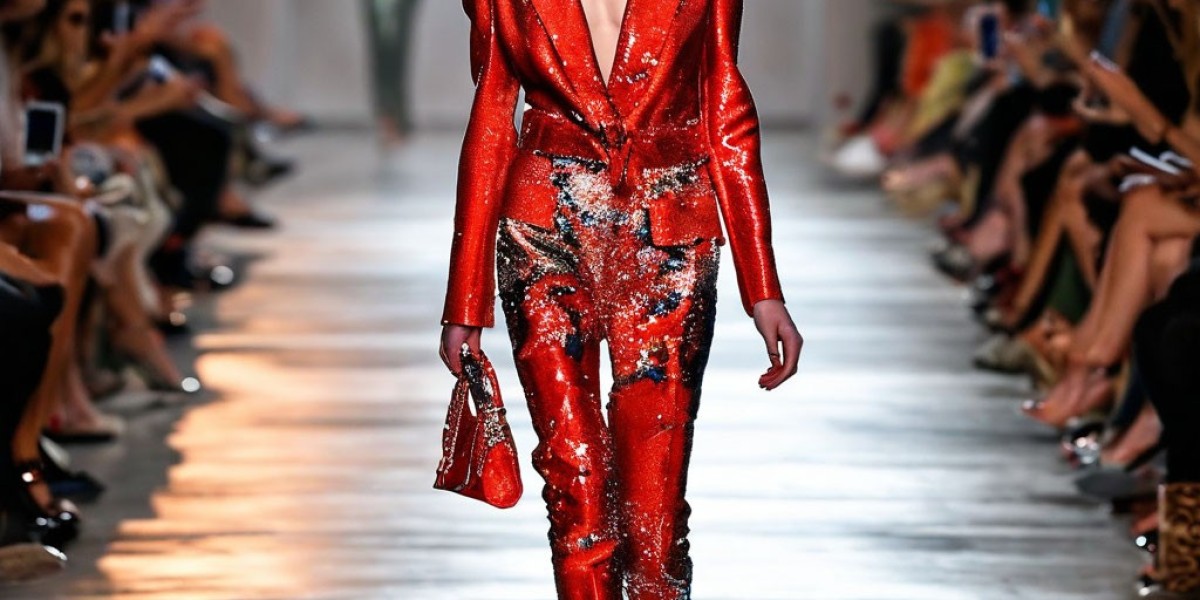This past year was filled with transformative moments that not only defined the fashion landscape but also set the stage for what’s to come in the near future. From trailblazing designers redefining luxury to the rise of AI-powered fashion platforms, 2024 was a year that pushed boundaries and redefined the meaning of style.
A standout player this year has been the luxury fashion aggregator LePodium, which gained prominence for its seamless curation of high-end brands, offering an extensive and exclusive collection for fashion aficionados worldwide. LePodium is quickly becoming a pivotal resource for anyone seeking the latest in designer fashion, providing a one-stop destination for discovering and purchasing luxury pieces. The platform's elegant interface and personalized recommendations have made it a favorite among industry insiders and consumers alike. For more insights into the world of luxury fashion, visit LePodium.
2024 also saw a dramatic resurgence of nostalgic fashion from the early 2000s, with designers bringing back iconic trends such as low-rise jeans, cargo pants, and bold statement accessories. This nostalgic wave was a love letter to the previous generation of fashion icons, while also serving as a reminder of the cyclical nature of style. Many fashion houses, including Balenciaga and Versace, embraced the Y2K aesthetic, blending it with modern, futuristic elements to create a look that felt both retro and forward-thinking.
In parallel, the year was marked by a significant leap in sustainable fashion practices. Many designers and brands began prioritizing eco-friendly materials and production methods, pushing the fashion industry closer to its much-needed sustainability goals. Notable names such as Stella McCartney and Patagonia continued to lead the charge, integrating cutting-edge green technologies into their collections. The rise of circular fashion — where clothing is recycled, upcycled, or repurposed — became more mainstream, with companies offering take-back schemes to reduce waste and promote conscious consumerism.
2024 was also the year of the digital revolution. Fashion-tech startups and established brands alike began incorporating more advanced digital tools, such as AI-driven virtual fitting rooms, augmented reality fashion shows, and digital clothing. These innovations reshaped the way consumers interact with fashion, providing a more immersive and personalized experience. The collaboration between fashion and gaming also flourished, with luxury brands releasing limited-edition virtual collections for metaverse platforms, creating entirely new ways for consumers to express their style in digital spaces.
Celebrity influence remained strong in 2024, but there was a noticeable shift towards more authentic, grassroots fashion icons. Rather than the traditional haute couture runway shows, influencers and rising stars on social media platforms became central to dictating fashion trends. The year saw the rise of “micro-celebrities,” individuals who may not have the same global reach as A-list stars but are gaining significant influence within niche communities, particularly in sustainability and ethical fashion.
Lastly, inclusivity continued to be a key focus for designers and brands in 2024. Fashion houses have made strides toward diversity, both in terms of size and race, with many presenting inclusive runway shows and launching collections for all body types. This movement has grown beyond just a trend, and many believe it will define the future of the industry. Brands like Savage X Fenty and Zara have led the charge, showing that inclusivity and high fashion can — and should — go hand in hand.
As we look to the future, the lessons learned from 2024 will continue to shape the next chapters of fashion. With sustainability, technology, and inclusivity at the forefront, the fashion world is poised for even more exciting transformations in the years to come.



